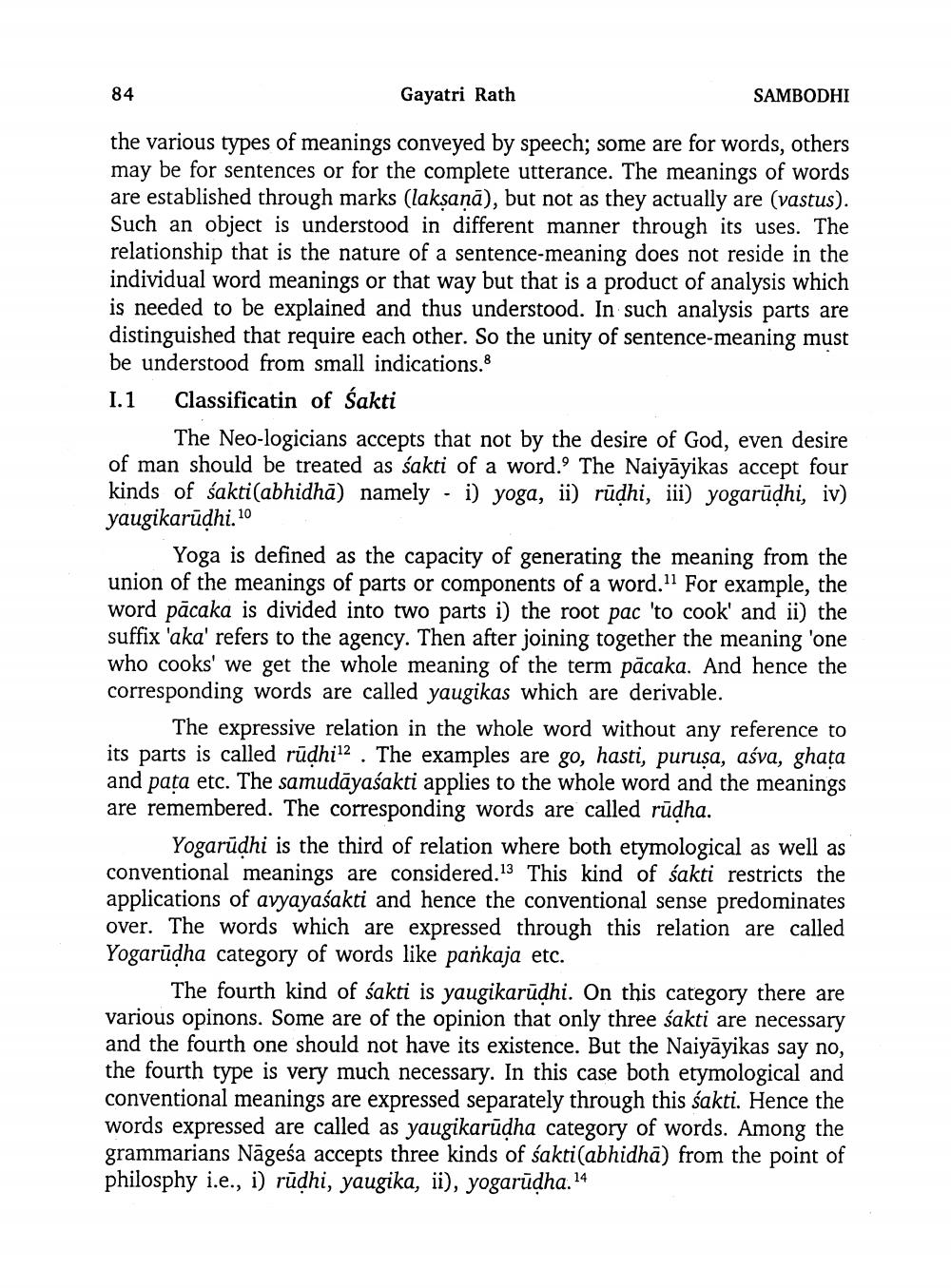________________
84
Gayatri Rath
SAMBODHI
the various types of meanings conveyed by speech; some are for words, others may be for sentences or for the complete utterance. The meanings of words are established through marks (laksaņā), but not as they actually are (vastus). Such an object is understood in different manner through its uses. The relationship that is the nature of a sentence-meaning does not reside in the individual word meanings or that way but that is a product of analysis which is needed to be explained and thus understood. In such analysis parts are distinguished that require each other. So the unity of sentence-meaning must be understood from small indications.8 1.1 Classificatin of Śakti
The Neo-logicians accepts that not by the desire of God, even desire of man should be treated as sakti of a word.' The Naiyāyikas accept four kinds of sakti(abhidhā) namely - i) yoga, ii) rūdhi, iii) yogarūdhi, iv) yaugikarūdhi. 10
Yoga is defined as the capacity of generating the meaning from the union of the meanings of parts or components of a word.11 For example, the word pācaka is divided into two parts i) the root pac 'to cook' and ii) the suffix 'aka' refers to the agency. Then after joining together the meaning 'one who cooks' we get the whole meaning of the term pācaka. And hence the corresponding words are called yaugikas which are derivable.
The expressive relation in the whole word without any reference to its parts is called rūdhi"2 . The examples are go, hasti, puruşa, aśva, ghata and pata etc. The samudāyasakti applies to the whole word and the meanings are remembered. The corresponding words are called rūdha.
Yogarūdhi is the third of relation where both etymological as well as conventional meanings are considered.13 This kind of sakti restricts the applications of avyayaśakti and hence the conventional sense predominates over. The words which are expressed through this relation are called Yogarūdha category of words like pankaja etc.
The fourth kind of sakti is yaugikarūdhi. On this category there are various opinons. Some are of the opinion that only three sakti are necessary and the fourth one should not have its existence. But the Naiyāyikas say no, the fourth type is very much necessary. In this case both etymological and conventional meanings are expressed separately through this śakti. Her words expressed are called as yaugikarūdha category of words. Among the grammarians Nāgesa accepts three kinds of sakti(abhidhā) from the point of philosphy i.e., i) rūdhi, yaugika, ii), yogarūdha. 24




